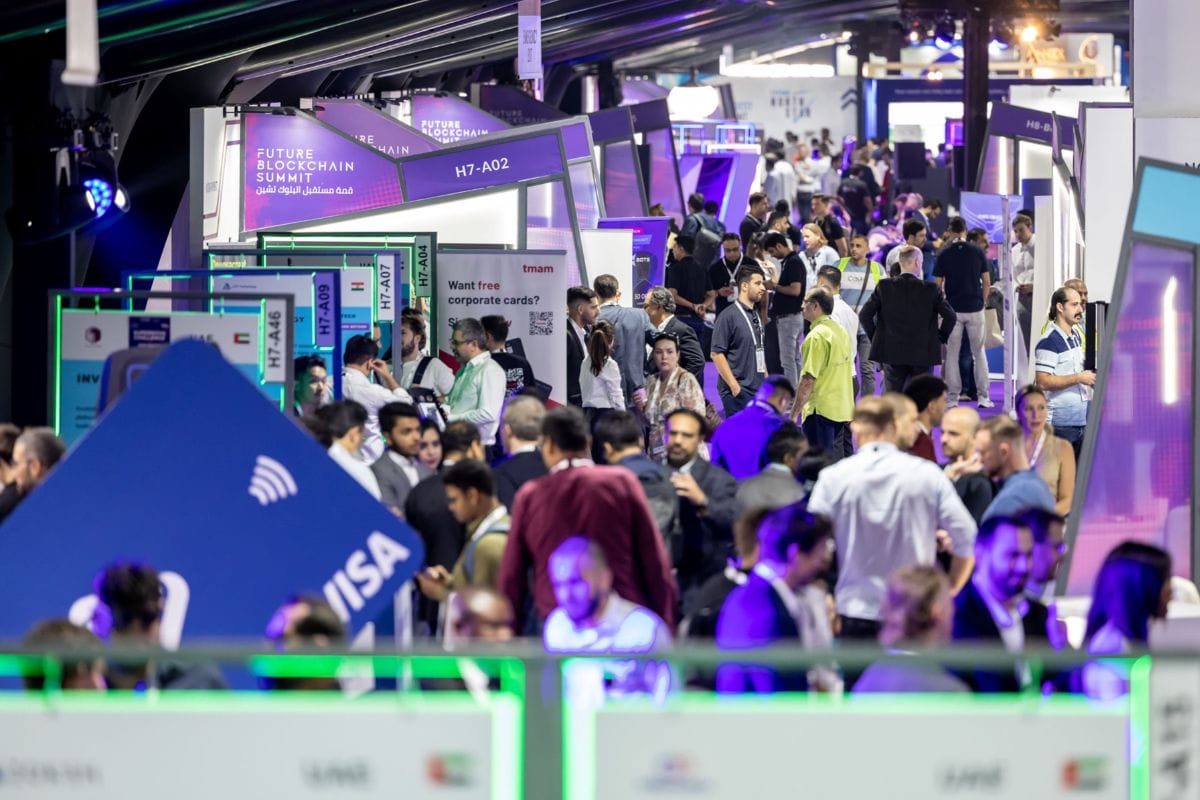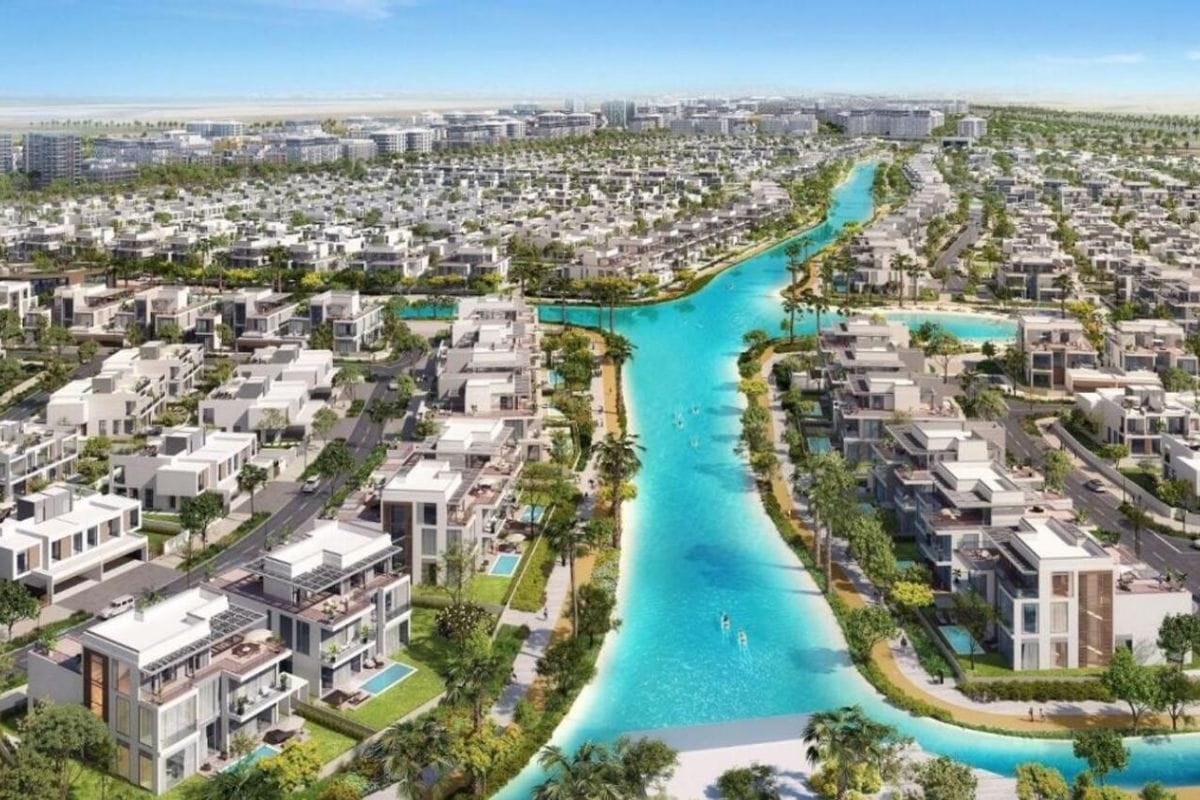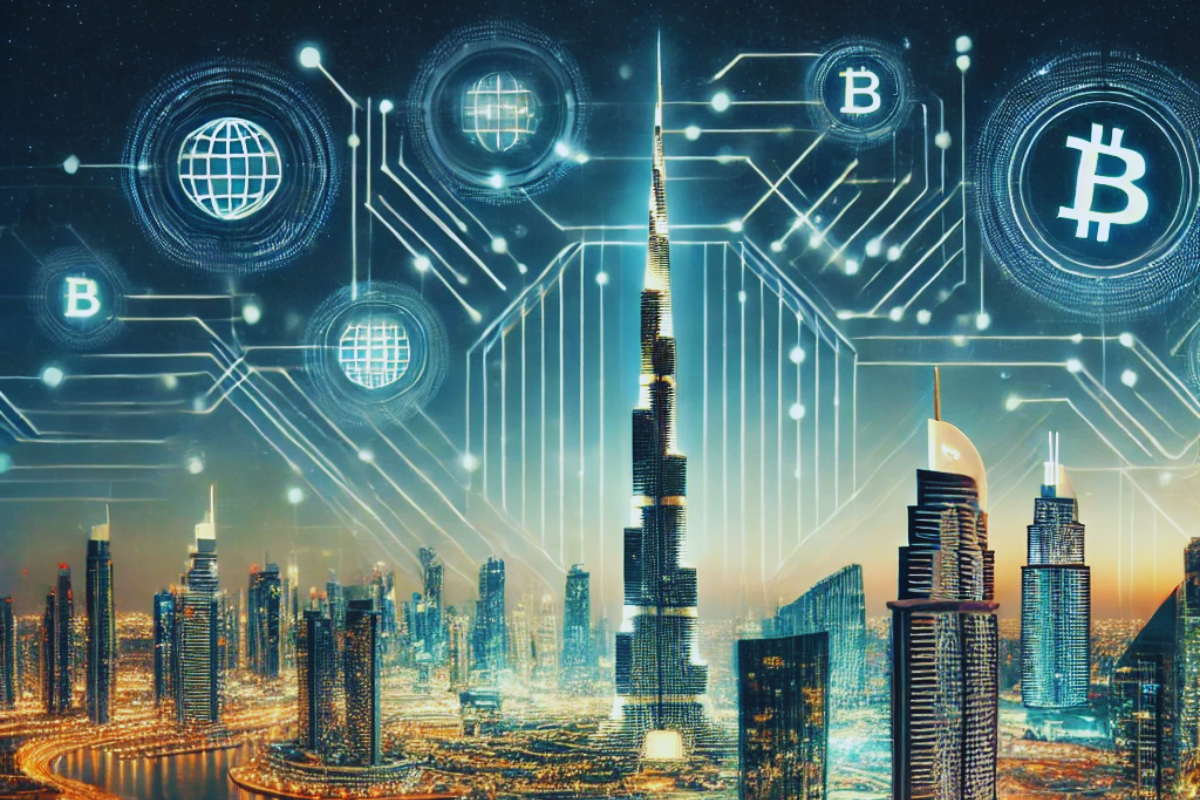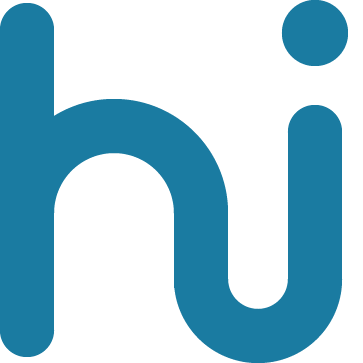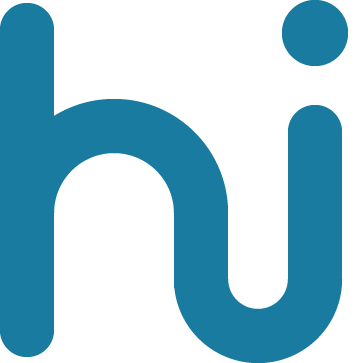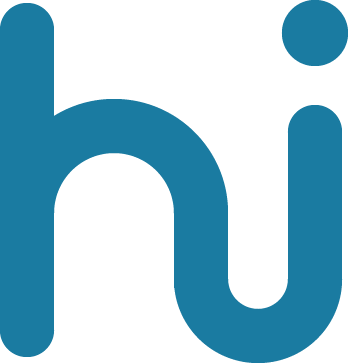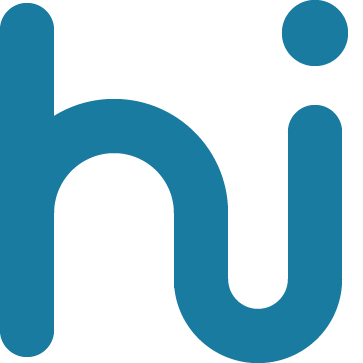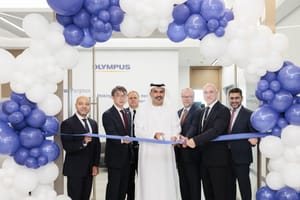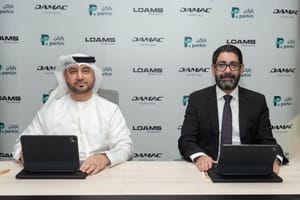Dubai has long been synonymous with ambition, innovation, and pushing the boundaries of what a city can achieve. Over the years, it has transformed into a global hub for forward-thinking technology and groundbreaking initiatives. Today, Dubai is setting its sights on becoming a leader in blockchain and cryptocurrency, embracing these transformative technologies as cornerstones of its digital future.
This vision isn’t just about adopting the latest trends—it’s backed by concrete strategies. The Dubai Blockchain Strategy, for example, aims to make Dubai the first city powered entirely by blockchain, revolutionizing government efficiency and unlocking new economic opportunities. Adding to this momentum, the Dubai International Financial Centre (DIFC) has launched the Dubai AI & Web 3.0 Campus, designed to attract over 500 companies in AI and blockchain technologies, showcasing the city’s commitment to fostering innovation on a global scale.
As regulations around cryptocurrency evolve, Dubai has emerged as a beacon for blockchain innovators worldwide. By providing clear, supportive frameworks and an ecosystem built for growth, the city is not just embracing the future—it’s shaping it. This article delves into how Dubai’s crypto regulations are paving the way for blockchain innovators, creating an environment where ideas flourish, and technology thrives.
Dubai's Vision for Blockchain and Crypto
Dubai Blockchain Strategy 2020 and Beyond
In 2016, Dubai launched the Dubai Blockchain Strategy with the ambitious goal of becoming the world's first city fully powered by blockchain technology. This initiative focuses on three main pillars: government efficiency, industry creation, and international leadership. A key objective of this strategy is to execute 50% of government transactions via blockchain, aiming to enhance efficiency, reduce costs, and improve service delivery.
Dubai’s Appeal to Global Innovators
- Tax-Friendly Environment: Dubai offers a favorable tax regime, including zero personal income tax and no capital gains tax, making it an attractive destination for entrepreneurs and investors.
- Strategic Location: Situated at the crossroads of Europe, Asia, and Africa, Dubai serves as a strategic hub for businesses looking to access markets across these regions.
- Digital Infrastructure: Dubai has invested heavily in state-of-the-art digital infrastructure, supporting the growth of technology-driven enterprises and fostering innovation.
The Role of Dubai Multi Commodities Centre (DMCC)
The Dubai Multi Commodities Centre (DMCC) plays a pivotal role in fostering blockchain startups and entrepreneurs through its Crypto Centre. Located in Almas Tower, the DMCC Crypto Centre offers co-working spaces, incubator and accelerator programs, and a supportive ecosystem tailored for crypto and blockchain businesses. Home to over 600 crypto firms, the center provides access to resources, networking opportunities, and a business-friendly environment, positioning Dubai as a global hub for blockchain innovation.
Key Regulations Driving Innovation
Dubai's progressive regulatory framework for virtual assets is pivotal in attracting blockchain innovators worldwide. The establishment of the Virtual Assets Regulatory Authority (VARA) and the implementation of comprehensive regulations underscore the city's commitment to fostering a secure and dynamic virtual asset ecosystem.
Introduction of VARA (Virtual Assets Regulatory Authority)
Established under Law No. (4) of 2022, VARA is the dedicated authority overseeing virtual assets in Dubai, excluding the Dubai International Financial Centre (DIFC). VARA's mandate includes regulating, supervising, and overseeing virtual asset services, ensuring that activities are conducted within a secure and transparent framework.
Licensing Frameworks for Blockchain Businesses
VARA has introduced a comprehensive licensing regime for Virtual Asset Service Providers (VASPs), encompassing various activities such as:
- Advisory Services
- Broker-Dealer Services
- Custodial Services
- Exchange Services
- Lending and Borrowing Services
- Payments and Remittances Services
- Virtual Asset Management and Investment Services
Each category has specific requirements, ensuring that entities operate with clarity and accountability. This structured approach simplifies compliance procedures, making it more straightforward for businesses to establish and operate within Dubai compared to other global markets.
Focus on Security and Transparency
To safeguard investors and maintain market integrity, VARA emphasizes:
- Anti-Money Laundering (AML) and Combating the Financing of Terrorism (CFT) Compliance: VASPs are required to implement robust AML and CFT measures, aligning with international standards to prevent illicit activities.
- Consumer Protection: Regulations mandate clear disclosures regarding services, fees, and associated risks, ensuring that consumers are well-informed. Mechanisms for handling complaints and disputes are also stipulated to uphold consumer rights.
Global Blockchain Innovators in Dubai
Dubai's progressive regulatory environment and strategic initiatives have attracted a multitude of blockchain companies and projects, establishing the city as a global hub for blockchain innovation.
Notable Companies and Projects
- Chainalysis: In May 2024, Chainalysis, a leading blockchain analysis firm, established its regional headquarters for Southern Europe, the Middle East, Central Asia, and Africa in Dubai, underscoring the city's appeal to global blockchain enterprises.
- DAMAC Group and MANTRA Collaboration: In January 2025, Dubai-based real estate developer DAMAC Group partnered with blockchain platform MANTRA to tokenize $1 billion worth of Middle Eastern assets. This initiative aims to convert ownership rights into digital tokens, facilitating online trading and enhancing the region's digital asset offerings.
- CoinDCX and BitOasis Acquisition: In July 2024, India-based crypto exchange CoinDCX acquired Dubai's BitOasis, a prominent Middle East-focused crypto platform. This acquisition aims to strengthen BitOasis's presence across 15 countries and elevate its service quality, reflecting Dubai's growing significance in the global crypto market.
Startups and Incubators
- DIFC FinTech Hive: The Dubai International Financial Centre (DIFC) hosts the FinTech Hive, a leading accelerator program that fosters a vibrant fintech ecosystem. Established in 2016, the Hive has attracted numerous startups, providing them with resources, mentorship, and networking opportunities to accelerate their growth.
- DMCC Crypto Centre: Launched by the Dubai Multi Commodities Centre (DMCC), the Crypto Centre offers a comprehensive ecosystem for businesses operating in the cryptographic and blockchain sectors. Located in Almas Tower, it provides co-working spaces, advisory services, and access to a network of industry professionals, supporting the diverse needs of startups and established companies alike.
Attracting Talent
Dubai's government has implemented policies to attract global talent, including the introduction of long-term visas for investors, entrepreneurs, and specialized talents. These initiatives aim to create an attractive environment for tech entrepreneurs and innovators, further solidifying Dubai's position as a leading destination for blockchain innovation.
Benefits for Blockchain Innovators in Dubai
Business-Friendly Policies
- Corporate Taxation: As of June 2023, the UAE introduced a federal corporate tax rate of 9% for businesses earning over AED 375,000 annually. This competitive rate positions Dubai as an attractive destination for blockchain and crypto-related enterprises, especially compared to higher-tax jurisdictions.
- Free Zones: Specialized zones like the Dubai Multi Commodities Centre (DMCC) and the Dubai International Financial Centre (DIFC) offer numerous benefits, including 100% foreign ownership, tax exemptions, and streamlined business setup procedures. These zones are designed to provide world-class infrastructure and cater to technology-driven industries.
Global Connectivity
- Networking Opportunities: Dubai’s Future Blockchain Summit is a key platform for global collaboration, attracting top fintech leaders, blockchain developers, and investors. Scheduled from October 12-15, 2025, this event highlights Dubai’s role as a nexus for innovation.
Government Support
- Conferences and Events: Dubai’s commitment to fostering blockchain innovation is evident through events like the Future Blockchain Summit, which facilitates knowledge sharing and partnerships while showcasing emerging technologies.
- Funding Opportunities: Initiatives such as the Dubai Future Fund provide crucial financial support to blockchain startups, helping innovative projects grow within Dubai’s thriving ecosystem. Venture capital firms and public-private partnerships also contribute to the funding landscape.
Challenges and How Dubai is Addressing Them
Dubai's ambition to become a global blockchain hub entails navigating several challenges, including regulatory complexities, the need for stakeholder education, and maintaining a competitive edge internationally.
Regulatory Challenges
- Balancing Innovation with Oversight: Implementing blockchain technology requires a delicate balance between fostering innovation and ensuring adequate oversight. The Dubai Blockchain Policy addresses this by establishing clear guidelines for government entities and private sector participants, promoting responsible blockchain deployment while safeguarding public interests.
- Addressing Crypto Volatility and Scams: The rapid evolution of blockchain and cryptocurrencies introduces risks such as market volatility and fraudulent schemes. To mitigate these risks, Dubai has developed comprehensive regulations and policies that provide a structured framework for blockchain implementation, enhancing security and trust in the ecosystem.
Educating Stakeholders
- Business and Consumer Education: Recognizing the importance of education in blockchain adoption, the Dubai Blockchain Center (DBCC) offers workshops, courses, and training programs on blockchain technology, use cases, and implementation strategies. These initiatives aim to equip businesses, investors, and consumers with the knowledge needed to engage confidently with blockchain applications.
- Academic Integration: Educational institutions in the UAE are increasingly incorporating blockchain into their curricula. For instance, the University of Dubai offers a Professional Diploma in Blockchain Fundamentals & Development, covering principles of blockchain, cryptocurrencies, and smart contracts, thereby preparing a skilled workforce for the blockchain sector.
Staying Competitive Globally
- Comparisons with Other Hubs: Cities like Singapore and Zurich have established themselves as blockchain-friendly environments. To maintain its competitive edge, Dubai emphasizes a progressive regulatory framework, strategic public-private partnerships, and substantial investments in digital infrastructure. The Dubai Blockchain Strategy exemplifies this approach, focusing on government efficiency, industry creation, and international leadership.
- Strategic Collaborations: Dubai actively seeks partnerships to bolster its blockchain ecosystem. A notable example is the collaboration between the Dubai Blockchain Center and the Cardano Foundation, which aims to advance blockchain education and technology adoption across the Middle East and North Africa.
The Future of Blockchain in Dubai
Dubai is steadfast in its pursuit of becoming a global leader in blockchain technology, integrating it across various sectors to enhance efficiency, transparency, and economic growth.
Integration of Blockchain Across Sectors
- Healthcare: Dubai is exploring blockchain applications to secure and privatize patient data management. By storing medical records on the blockchain, the healthcare sector aims to ensure data privacy and facilitate secure access for authorized healthcare professionals.
- Real Estate: The real estate sector is undergoing a transformation through blockchain integration. Tokenization of properties allows for fractional ownership, making real estate investments more accessible and liquid. This approach is expected to attract a diverse range of investors and democratize property ownership.
- Finance: Blockchain technology is influencing Dubai's finance sector by providing secure, transparent, and tamper-proof transactions. The adoption of blockchain in financial services is set to streamline processes and enhance trust in financial transactions.
Dubai’s Goal for a Blockchain Economy
Dubai's vision is encapsulated in the Dubai Blockchain Strategy, which aims to make Dubai the first city fully powered by blockchain. This strategy focuses on three pillars: government efficiency, industry creation, and international leadership. By leveraging blockchain, Dubai intends to streamline government processes, foster new business opportunities, and position itself as a pioneer in blockchain adoption.
Predictions for Growth
The implementation of blockchain is anticipated to unlock new business avenues, stimulate growth, and create jobs, contributing significantly to Dubai's economy. The adoption of blockchain is crucial in realizing Dubai's smart city ambitions, enabling interconnected and intelligent urban systems that enhance the quality of life.
Dubai’s forward-thinking approach to crypto regulations has solidified its reputation as a global leader in blockchain innovation. By fostering a clear and supportive regulatory framework, offering robust government backing, and maintaining a business-friendly environment, the city continues to attract innovators and entrepreneurs from around the world.
With its focus on integrating blockchain across sectors and creating a thriving ecosystem for talent and technology, Dubai has positioned itself as a pioneer in the digital economy. As blockchain reshapes industries and transforms how we interact with technology, Dubai stands poised to lead the charge, setting new benchmarks for innovation and growth in the global blockchain arena.
Also Read:
